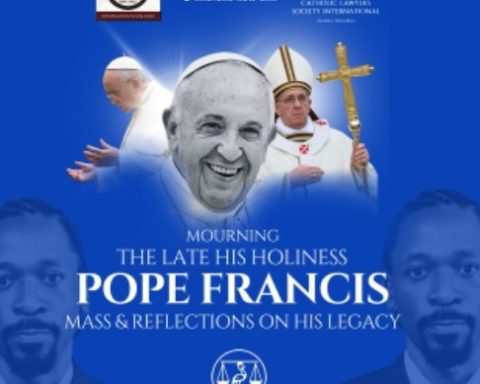By Vatican news
he Holy See Press Office announced on Tuesday that Pope Francis’ funeral Mass will take place on Saturday, April 26, 2025, at 10:00 AM in St. Peter’s Square.
Cardinal Giovanni Battista Re, Dean of the College of Cardinals, will preside at the Mass, which will be concelebrated by Patriarchs, Cardinals, Archbishops, Bishops, and priests from across the globe.
The Eucharistic celebration will conclude with the Ultima commendatio and the Valedictio, marking the beginning of the Novemdiales, or nine days of mourning and Masses for the repose of Pope Francis’ soul.
The late Pope’s body will then be taken into St. Peter’s Basilica and then to the Basilica of St. Mary Major for entombment.
Earlier, on Wednesday, the coffin containing the Pope’s body will be carried from the chapel of the Casa Santa Marta to St. Peter’s Basilica, so that the faithful may pay their respects.
Cardinal Kevin Farrell, Camerlengo of the Holy Roman Church, will preside over the rite of translation on April 23, which will begin at 9:00 AM with a moment of prayer..
The procession will pass through Santa Marta Square and the Square of the Roman Protomartyrs, according to the Holy See Press Office.
The procession will then exit through the Arch of the Bells into St. Peter’s Square and enter the Vatican Basilica through the central door.
At the Altar of the Confession, the Cardinal Camerlengo will preside over the Liturgy of the Word, at the conclusion of which the visits to the body of the Roman Pontiff will commence.
St Peter’s Basilica will remain open for the faithful who wish to pay their respects to the late Pope on Wednesday from 11: AM to midnight; on Thursday from 7:00 AM to midnight; and on Friday from 7:00 AM to 7:00 PM.



























